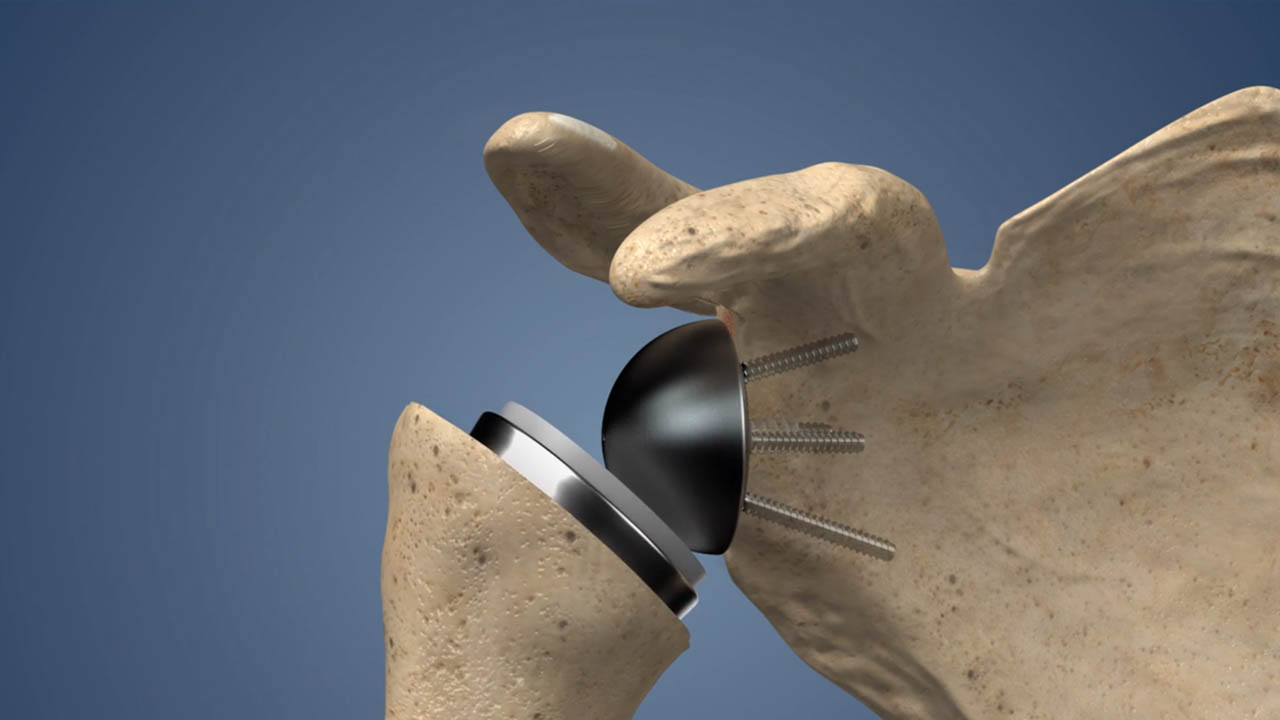Revision Reverse Shoulder Replacement

Revision Reverse Shoulder Replacement in Bengaluru at VijaySheela Sports-Orthopedics Clinic
At VijaySheela Sports-Orthopedics Clinic, Bengaluru, Dr. Vijay Girish specializes in performing Revision Reverse Shoulder Replacement — a complex surgical procedure designed to correct or replace a previously failed or problematic shoulder implant. Over time, a shoulder replacement may fail due to loosening, infection, instability, or wear of components. Revision surgery restores shoulder stability, function, and pain-free motion by carefully removing the damaged implant and reconstructing the joint with advanced prosthetic components.
Revision reverse shoulder replacement demands high precision and expertise, especially when dealing with bone loss, scar tissue, or damaged rotator cuff structures. Using advanced imaging, meticulous preoperative planning, and modern surgical technology, Dr. Vijay Girish ensures that each revision procedure achieves optimal shoulder alignment, strength, and mobility — helping patients regain confidence and independence in their daily activities.
What is Revision Reverse Shoulder Replacement?
A Revision Reverse Shoulder Replacement is a surgical procedure performed when a primary (initial) shoulder replacement has failed or is causing ongoing pain and dysfunction. Unlike a standard shoulder replacement, a reverse shoulder design switches the ball and socket orientation to improve stability and allow other muscles — particularly the deltoid — to compensate for a weak or torn rotator cuff. Revision surgery involves removing the old implant, addressing any bone or soft tissue issues, and inserting a new prosthesis designed for enhanced fixation and stability.
Common Reasons for Revision Reverse Shoulder Replacement
A revision procedure is recommended when the existing implant fails or complications arise that affect shoulder function:
- Loosening or displacement of the existing shoulder implant components.
- Infection in the artificial joint leading to chronic pain and inflammation.
- Instability or recurrent dislocations after the initial replacement surgery.
- Wear or breakage of implant parts over time, reducing joint performance.
- Bone loss or rotator cuff deficiency that compromises joint stability and motion.
Surgical Process and Recovery
Revision reverse shoulder replacement is performed under general anesthesia and requires meticulous planning. The surgery involves removing the old implant, cleaning the joint area, treating infection (if present), and reconstructing the bone before fitting the new prosthesis. Specialized implants designed for revision cases ensure stable fixation even in compromised bone.
- Hospital stay is typically 2–3 days, depending on the complexity of the case.
- Gentle shoulder motion and physiotherapy begin soon after surgery to prevent stiffness.
- Strengthening exercises are gradually introduced as healing progresses.
- Most patients regain improved shoulder function and reduced pain within 3–6 months.
Revision Reverse Shoulder Replacement in RMV 2nd Stage
At VijaySheela Sports-Orthopedics Clinic, Bengaluru, Dr. Vijay Girish combines advanced revision shoulder replacement techniques with precision planning and patient-specific rehabilitation. His expertise ensures optimal alignment, joint balance, and lasting stability for complex revision cases. The goal is to restore comfort, mobility, and long-term implant durability — helping patients return to a more active and pain-free life.
